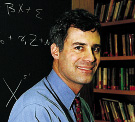|
Web
Exclusives:Features February
13, 2002: In Congressional hearings and lawsuits, observers wondered if there was a connection between the faulty tires and the hostility between workers at Firestone's Decatur, Illinois, plant and the company between 1994 and 1996. During that time, Firestone workers struck for the year, and the company hired replacement workers to take their jobs. "We estimate that more than 40 lives were lost as a result of the excessive number of problem tires produced in Decatur during the labor dispute," Krueger and Mas write in their paper, "Sttrikes, Scabs and Tread Separations: Labor Strife and the Production of Defective Bridgestone/Firestone Tires." They suggest that perhaps 250 lives were saved by the recall. "For some time, I have been interested in the effect of pay on worker performance," said Krueger. While on leave as the chief economist at the Department of Labor during the 1994-95 school year, he said, "I also became interested in whether replacement workers tend to produce lower-quality products." Instead, Krueger and Mas concluded, that the increase in defective tires probably stemmed from "something about the chemistry between the replacement workers and the recalled strikers, or the cumulative effect of labor strife in general." Krueger has taught at Princeton since he received his doctorate from Harvard in 1987. He heads Princeton's industrial relations section, which supports graduate students in labor economics as well as faculty and student research in the subject. He also directs the university's Survey Research Center, which he helped found in 1992 in an effort to help students and faculty generate data for their research. "I believe students learn that statistics is much more than a dry set of formulas if they are involved in analyzing data they collected themselves, based on a survey they designed themselves," Krueger said. He pointed to a student who won a prize for her senior thesis, which was the first paper to offer estimates of the amount of tutoring that occurs outside of schools in the U.S. and compare the U.S. and Japan in that regard. In addition to his academic duties, Krueger writes an occasional column for the Business Section of the New York Times. In one column, he proposed giving vouchers to low-income children to pursue educational programs during the summer, since some research finds that the children of low-income families learn about as much during the school year as do children of wealthy families but fall behind during the summers. Education has been a central concerns of Krueger's research. "Given
the huge role that human capital plays in the economy, one cannot
fully understand the wealth of nations without understanding education,"
he said. "I've calculated that two-thirds of national income
is a return to acquired skills, with formal education being the
most important means to acquire skills." By David Marcus '92 You can reach David at dmarcus@thedeal.com
|

 Strife
between labor and management can be deadly for the people who use
the products made when workers are at odds with their employer,
economics professor Alan Krueger and graduate student Alexandre
Mas found in a recent paper. Two years ago, Firestone and Ford recalled
more than 14 million tires.
Strife
between labor and management can be deadly for the people who use
the products made when workers are at odds with their employer,
economics professor Alan Krueger and graduate student Alexandre
Mas found in a recent paper. Two years ago, Firestone and Ford recalled
more than 14 million tires.